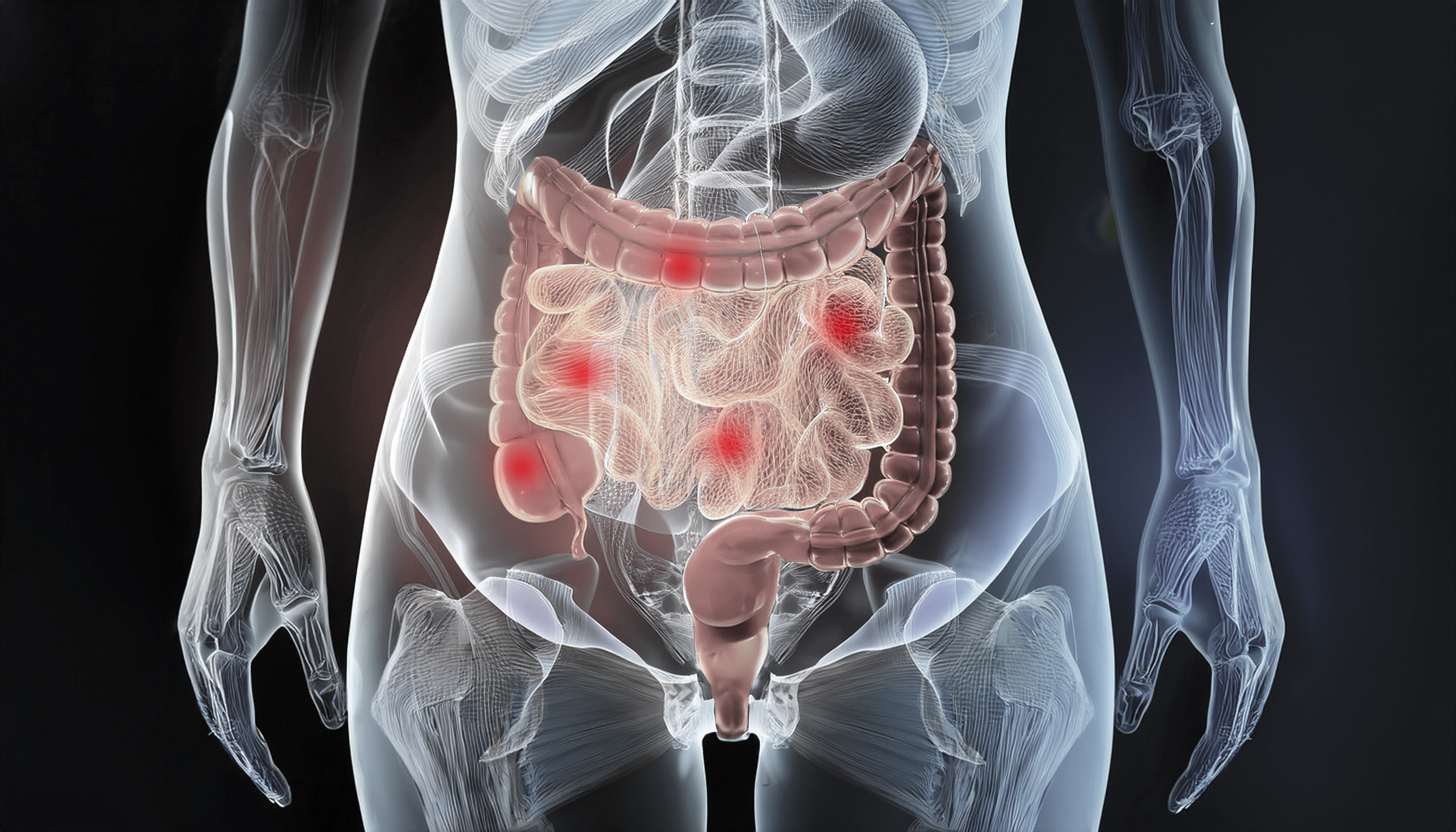
What is Crohn's Disease?
Crohn's disease is a chronic inflammatory condition that can affect any part of the digestive tract, from the mouth to the anus. It causes symptoms such as abdominal pain, diarrhea, weight loss, and fatigue. But what exactly causes Crohn’s disease? Depending on the medical perspective, the cause is interpreted differently. In this in-depth blog, we analyze the causes and symptoms of Crohn’s disease from various viewpoints.
Crohn's disease is often confused with ulcerative colitis, another form of inflammatory bowel disease (IBD). The key difference is that Crohn’s can cause inflammation throughout the entire digestive tract, while ulcerative colitis is limited to the colon.
Common Symptoms of Crohn's Disease:
Chronic diarrhea
Abdominal pain and cramping
Loss of appetite and weight loss
Fatigue
Blood in the stool
Inflammation in other parts of the body, such as joints, eyes, and skin
Causes of Crohn’s Disease from Different Medical Perspectives
Western Medicine: Autoimmune Disorder and Genetic Factors
In Western medicine, Crohn’s disease is considered an autoimmune disorder in which the immune system mistakenly attacks healthy intestinal tissue. Genetic predisposition plays a role, as the disease often runs in families. Environmental factors such as an unhealthy diet, smoking, and stress are also linked to an increased risk of developing Crohn’s. Treatment focuses on reducing inflammation through medications like immunosuppressants, corticosteroids, and, in severe cases, surgery to remove damaged intestinal tissue.
Traditional Chinese Medicine: Imbalance of Qi and Digestive Energy
According to Traditional Chinese Medicine (TCM), Crohn’s disease results from a disruption in the Qi flow of the digestive system. A weak Spleen Qi or excess ‘Dampness’ and ‘Heat’ in the intestines can lead to chronic inflammation and diarrhea. Acupuncture is used to restore energetic balance, while herbal formulations such as Huang Lian (Coptis) and Bai Zhu (Atractylodes) help strengthen digestion and reduce inflammation. TCM also emphasizes the importance of consuming warm, easily digestible foods to support gut health.
Germanic Medicine: Biological Conflict as the Root Cause
Germanic Medicine (German New Medicine) suggests that Crohn’s disease stems from an unresolved biological conflict, often related to a “digestive blockage conflict.” This could result from a shocking or prolonged experience that the body metaphorically “cannot digest.” Once this conflict is resolved, the body enters a healing phase, which manifests as inflammation and pain. Therapy focuses on identifying and processing emotional trauma.
Functional Medicine: Gut Health and the Microbiome
Functional medicine emphasizes gut health and the microbiome as the primary factors in Crohn’s disease. A disrupted gut flora, increased intestinal permeability (leaky gut), and an overactive immune response can contribute to chronic inflammation. Treatment includes an anti-inflammatory diet free of gluten, dairy, and processed foods, as well as probiotics, prebiotics, and digestive enzymes to optimize gut function.
Holistic Medicine: The Mind-Body Connection
Holistic medicine views Crohn’s disease as a condition influenced by physical, emotional, and energetic factors. Chronic stress, anxiety, and suppressed emotions can disrupt the digestive system and exacerbate inflammation. Treatment methods include meditation, breathwork, herbal therapies, and energy healing techniques such as Reiki to restore balance within the body.
Orthomolecular Medicine: Nutrition and Supplements
Orthomolecular medicine highlights the importance of nutrition in managing Crohn’s disease. Deficiencies in essential nutrients such as vitamin D, omega-3 fatty acids, and magnesium can worsen inflammatory responses. Supplementing with curcumin, resveratrol, and L-glutamine can help reduce gut inflammation and support intestinal healing.
Epigenetics: Environmental Factors and Gene Expression
Epigenetics explores how environmental factors like diet, stress, and toxins influence gene expression. While genetic predisposition plays a role, a healthy lifestyle can help manage Crohn’s disease. This includes an anti-inflammatory diet, regular exercise, and avoiding harmful substances like pesticides and heavy metals.
Mesology: Individualized Diagnosis and Treatment
Mesology integrates knowledge from Western and Eastern medicine to identify the underlying causes of Crohn’s disease. Using electro-acupuncture and kinesiology, practitioners assess a patient’s energetic balance. Based on these findings, a personalized treatment plan is developed, including dietary recommendations, herbal therapies, and gut-focused treatments.
Frequency Therapy: Balance in the Body
Frequency therapy focuses on optimizing cellular communication through specific vibrations. This resonance can help biological processes function more efficiently, which may support the body's recovery and balance. While this method is not recognized as a medical treatment, many users see it as a way to enhance overall energy and vitality.
Meditech Europe: In Harmony with Your Health
Meditech Europe stands for innovation, quality, and a conscious way of living. We offer a carefully curated range of advanced technologies, natural products, and smart solutions to help you optimize your environment. Our products are developed with attention to detail and a focus on balance and efficiency. With years of expertise and a passion for progress, we deliver products that meet the highest quality standards. Meditech Europe is known for its personal approach and expert advice, both online and on location. Want to learn more about our products and how they can contribute to a balanced lifestyle? Contact us at marijn@meditecheurope.nl for more information.




